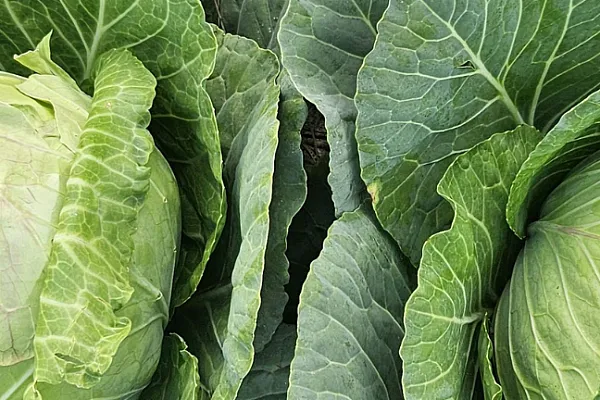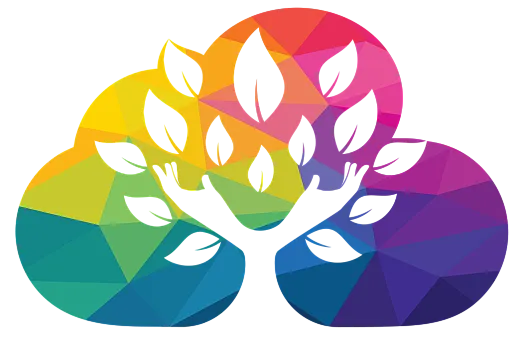
Diversity, Equity, and Inclusion in our Societies

This commitment is represented in the strategic plans of the Societies and advanced through the work of the Diversity, Equity, and Inclusion in ASA, CSSA, SSSA Committee (DEI Committee). The committee is comprised of members dedicated to enhancing equity within our sciences, inclusion throughout our Societies, and increasing diversity in people and perspectives. This is accomplished through the implementation of the overall Societies’ DEI initiatives as informed by members, the Board of Directors, the elected leadership and staff. The committee also works collaboratively with leaders across the programs and activities of the Societies.
In March 2021, the three Boards of Directors approved and unanimously supported a Diversity, Equity, and Inclusion Statement that affirms our commitment to diversity, equity, and inclusion in our Societies and our sciences.
Recommendations report
Using survey information, member conversations, and research-based studies from literature, a DEI Recommendations Report was developed and the ACS DEI Committee submitted the recommendations which were approved by the ASA, CSSA, and SSSA Boards of Directors. The work of the committee is guided by these recommendations which may be viewed in the sections below.
Information from the DEI member survey indicated that members have experienced discrimination and harassment in the Societies and at the meetings. While many noted that this has happened in the distant past, reports do indicate that it still occurs in various forms. ASA, CSSA, and SSSA have zero-tolerance and are committed to creating expectations that lead to zero experiences of discrimination and harassment in our Societies. We also recognize our responsibility to educate members on acceptable behaviors - both within our activities/programs and as members of the greater society.
As a first step, the committee established a Society-wide DEI and Safe Space Advocate program ensuring that reporters of harassment at the CANVAS meeting are safe and have the needed support. The program brings in a third-party who is experienced in receiving and investigating discrimination and harassment reports during and after the meeting. Our advocate is present in-person from Sunday-Wednesday and provides an aggregated report to the committee. In addition, a leadership program is conducted for those in leadership roles at the meeting about how the program works.
A Report a Concern form has been created so anyone in our Societies may provide feedback, concerns, ideas, and suggestions on DEI issues and may be done anonymously.
At the CANVAS meeting, and for 30 days after, you may reach our DEI and Safe Space Advocate:
- Please send a message to Susan Chapman with any questions or concerns so they may be addressed.
The ACS-CSSA-SSSA Ethics Committee is a collaborative group dedicated to creating a safe and welcoming environment in ASA, CSSA, and SSSA. The purpose of the Committee is to guide the Societies’ efforts to continue fostering a culture of integrity, appropriate conduct, and accountability within the Societies.
Key functions include:
- Evaluating and updating the Statement of Ethics and Code of Conduct
- Developing guidelines and processes for receiving and evaluating reports of misconduct/breach of ethics
- Confidentially evaluating reports of misconduct/breach of ethics in accordance with established and approved procedures, including recommendations for disciplinary actions if appropriate
- Enhancing awareness of the process for reporting misconduct/breach of ethics
- Suggesting improvements for member training in ethical conduct
- Providing annual written reports to the Boards of Directors
Members interested in serving on the committee may volunteer here (appointments are made by the respective Presidents as needed).
The education/training working group of the committee develops webinars of relevant topics informed by input from the membership. If you have suggestions, please send a message to Susan Chapman
Current webinars planned:
- Fieldwork Safety – back by popular demand (anticipated for January 2026)
- Developing Resiliency
Previous webinars include (links to YouTube recordings):
- Fieldwork Safety (not recorded)
- Cultivating Respect in the Workplace
- Managing Stress, Mental Wellness, and Compassion Fatigue for Agriculturalists
- Inclusive Mentoring
- Reducing Bias in the Assessment of Posters and Presentations
- Responding as a Bystander to Harassment, Discrimination, and Bias
- Transformative Power of Difficult Conversations
- Understanding Diversity and Allyship in the Societies
Mentoring is one of the most fundamental assets the Societies can offer members and is crucial for establishing an environment of inclusivity.
The DEI Committee’s Mentoring working group diligently detailed member needs, system requirements, conducted a pilot program and has provided recommendations (including ongoing assessments) to Society staff for a program launch in 2025!
The Mentoring group has developed and compiled the following resources to help mentors and mentees grow and maintain successful relationships:
- Inclusive Mentoring webinar | CSA News article (July, 2025)
- CSA News Articles - Up your mentoring skills with these on point CSA News and Natural Science Education journal articles on Mentoring
- NAPB Mentoring Guide – adapted for ASA, CSSA, SSSA
Ready to get started? View the Mentoring Program here (full launch in Fall)
This section will include information on the review process for Society policies and recommendations for updates
The committee and Societies leadership believe it is important to communicate around issues related to diversity, equity, and inclusion.
Current content and information regarding DEI and Inclusivity:
- DEI Committee Update, CSA News December 2025
- Fostering Connections, Creating Resiliency at the CANVAS meeting, CSA News November 2025
- Reducing Bias in the Judging of Posters and Presentations, CSA News October 2025
- Managing Stresss, Mental Wellness, and Compassion Fatigue, CSA News September 2025
- Inclusive Mentoring in STEM, CSA News July 2025
- 2024 Diversity Student Poster Contest, CSA News June 2025
- Societies Board of Directors Approve Statement of Ethics, CSA News January 2025
- Sabor de San Antonio: Rediscovering roots through food, history, and multi-lingual science, CSA News January 2025
- DEI Activities Move Forward – a 2024 Program Report, CSA News December 2024
- Bridge Scholars: Improving Inclusive Excellence Through Mentorship, CSA News March 2024
- 2023 Diversity Student Poster Contest, CSA News January 2024
- Advancing Diversity, Equity and Inclusion: Operationalizing DEI at the Societies, CSA News October 2023
- What is Critical Allyship?, CSA News July 2023
- Continuing Our Work to Improve Diversity, Equity, and Inclusion, CSSA President's Message, CSA News April 2023
- Bridge Scholars: Leveraging Partnerships, Resources to Improve Diversity, CSA News April 2023
- Presidents Message: Societies Approve DEI Recommendations, CSA News May 2022
- Presidents Message on Diversity, Equity, and Inclusion, CSA News January 2022
Assessing DEI across ASA, CSSA, SSSA
In the spring of 2021, a cross-Society DEI survey was developed and conducted. This survey was an opportunity to provide a roadmap for the next phase of the initiative to bring long-term actions to support DEI in our science community. View the 2021 ASA-CSSA-SSSA Diversity, Equity, and Inclusion Survey Report.
Key take-aways which informed the report were:
- 73% agree that the DEI initiative should be a top priority
- The Societies are not strongly viewed as providing programs/resources to foster the success of under-represented groups in our membership and our sciences
- Of the Societies’ programs and activities, there is no one category with a ranking of 46% or greater in which the Societies are doing well or very well in integrating DEI
- Implicit and gender bias was most prevalent for those experiencing discrimination within the Societies
- There is strong support for more action and support in program development and less on conversations/research
- There are both proponents and detractors for the DEI Initiative within the Societies along with a group that believe there are no DEI-related concerns within the Societies
Recommendations report
Using survey information, member conversations, and research-based studies from literature, a Recommendations Report was developed in 2021. The ACS DEI Committee submitted the recommendations which were approved by the ASA, CSSA, and SSSA Boards of Directors. The work of the committee is guided by these recommendations which are listed in priority order. View the Complete Recommendations Report (2021).
SSSA
The SSSA Representation and Recognition Task Force developed a report (2018) on recommendations for enhanced gender recognition and representation in the Society. They are planning on expanding their focus from gender equity, to highlight an inclusion and diversity review.
ASA
The ASA Representation and Recognition Task Force provided a report (2019) on enhanced gender recognition and representation in the Society.
Membership
- Member Hub Circles connect members through human interest areas-beyond our technical science. We’re expanding to enhance the social connections of members to speak to the social fabric across our agronomy, crop science, and soil science communities.
- Awards, scholarships, and grants are available across a wide spectrum of opportunities – particularly for students (graduate and undergraduate) and early career members. The objectives are to ensure opportunities for participation, building careers, and recognition.
Publications
Efforts to enhance DEI contributes to well-rounded publications, for example, by encouraging diverse representation on editorial boards and as peer reviewers. This also includes ensuring accessibility for our published content. We have three objectives:
- Evaluate existing programs and policies to enhance diversity, equity and inclusion
- Enhance diversity within our reviewer pool, editorial boards, authors, and featured research
- Communicate progress with regular updates; enhance the accessibility of resources to diverse groups
Some examples of our ongoing work include:
- Societies Move to 'Expects Data': The Data Policy of ASA, CSSA, and SSSA expects the storage and availability of data necessary to understand and evaluate phenomena reported in our publications. Data should be stored or archived in domain repositories and archiving should follow best management practices for metadata and data curation.
- Outreach in China: As a result of a dedicated campaign, five editorial board members from China have been recruited. A brochure and set of videos, translated into Chinese, details our publications and submissions requirements.
- Plain Language Summaries: Most of our journals now request or require Plain Language Summaries (PLS) to be submitted and published with each research article – to reach new audiences (scientists in other fields, undergraduate and graduate students, and readers not fluent in English).
- Peer Review Mentorship Program: The ASA, CSSA, SSSA Peer Review Mentorship Program provides training and guidance to early career scientists.
- Color Figure Policy: Adopted author guidelines for figure preparation that accommodate individuals with color-blindness.
- Gender-Neutral Honorifics: Added the honorific “Mx” to the ScholarOne system
- Author Pronouns in Published Articles: Authors may add pronouns to the byline their articles. They may also add them retroactively to previously published articles without correction statements or coauthor consent (for their own pronouns).
- CRediT Taxonomy: Improve transparency and accessibility of research contributions
- Wiley Author Name Change Policy: Makes it easier for authors to change their name on published papers
Certification
Certified Professional Soil Scientist (CPSS): The Soils Certifying Board requires one ethics credit per each CEU cycle (1.0 CEU in ethics as part of the 30.0 CEU requirement for CPSS/CPSC).
The ASA, CSSA, SSSA Diversity, Equity, and Inclusion Committee focuses its activities on key areas that inform and grow more diverse, equitable, and inclusive Societies. The committee is guided by the 2021 Recommendations Report and its activities are advanced by working groups specific to each of the recommendations. The committee welcomes feedback and suggestions for future programming. To reach the committee chair and staff, please login to view the roster. Interested in volunteering for the committee? Sign-up here.
The DEI Committee has been focused on the first three prioritized recommendations and developing programming for the Annual Meeting. View their Annual Committee Reports for updates and reports from the working groups.
Celebrate Diversity!
Join us in celebrating recognized diversity months, featuring members who are leaders in their field.
Published on behalf of
